-
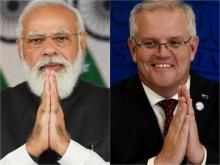
In the presence of Indian Prime Minister Narendra Modi and Australian Prime Minister Scott Morrison, Indian Minister of Commerce and Industry Piyush Goyal and Australian Trade Minister Dan Tehan signed an interim trade agreement on April 2, 2022, at the signing ceremony of the India-Australia Economic Cooperation and Trade Agreement.
-
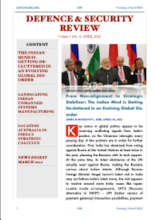
Key actors in global politics appear to be receiving conflicting signals from India's position on the Ukrainian imbroglio every passing day. A few pointers are in order for further consideration. First, India has abstained from voting against Russia at the United Nations at least twice in the past, pleasing the Russians with its tacit support. At the same time, its latest abstinence at the UN actually went against Russia, making the Russians curious about Indian intents.
-
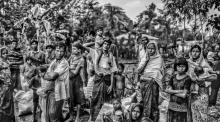
The Rohingyas, as described by UN Secretary-General Antonio Guterres, are "one of, if not the most discriminated people in the world." Native to Myanmar's Rakhine state, Rohingyas are a stateless Muslim minority. Myanmar does not recognize them as citizens and considers them illegal immigrants. According to the Human Rights Watch, various laws in place discriminate against them, including prohibitions on their freedom of movement, education, and employment.
-

The Ukraine-Russia conflict is more than one month old now, yet there is no immediate solution in sight. Just before starting the invasion of Ukraine, Russian President Vladimir Putin had given a clear-cut 'nuclear' message to the world by mentioning that any western intervention would witness consequences the West had never seen or thought of before. Putin is systematically raising the Weapons of Mass Destruction (WMD) bogey over the last month. Traditionally, chemical, biological, radiological, and nuclear (CBRN) weapons are classified as WMD.
-

The recent India-China Corps Commander meeting held at the Chushul-Moldo border meeting point on the Indian side on March 11, 2022, has yielded no result and remained “inconclusive.” The Joint statement of the 15th round of the bilateral military meeting since the last 20 months following the violent Galwan clash (June 2020) states that “the two sides had a detailed exchange of views in this regard, in keeping with the guidance provided by the state leaders to work for the resolution of the remaining issues at the earliest.”[1] It means, a) the Ladakh-Xinjiang bo
-
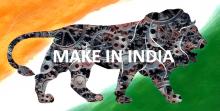
The Russian invasion of Ukraine on February 24 has brought to the fore the grave geopolitical fault lines in Europe. India, the largest democracy in the world, has tacitly sided with Putin’s authoritarian Russia by abstaining from all the UN votes taken place since the Russian invasion. India’s decision was not so much about returning the favour of the Soviet Union’s crucial support on Kashmir issues during the early years of Indian independence. Rather, it was to protect New Delhi’s vital strategic interests.
-
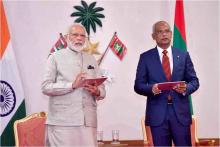
India intends to be a leader in extending sustainable finance for the development of vulnerable countries.
-
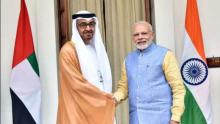
On February 18, 2022, India signed a Comprehensive Economic Partnership Agreement (CEPA) with UAE. It came after Indian Prime Minister Narendra Modi and the Crown Prince of Abu Dhabi, HH Sheikh Mohammed bin Zayed Al Nahyan, attended the India-UAE Virtual Summit. "I believe that the India-UAE CEPA signed today will be a game-changer in our economic ties," PM Modi tweeted after the Summit. CEPA was signed by Indian Union Commerce Minister Piyush Goyal and UAE Minister of Economy Abdulla bin Touq Al Marr at a function held in New Delhi on the same day.
-

Different media groups have produced contrasting perceptions of the situation in Ukraine thus far. Internet and social media sources are full of deep fakes, leaving the common citizens divided virtually along with Russian and non-Russian narratives. But, the reality on the ground is that as of March 1, 2022, Russia is in complete control of significant parts of Ukraine's territory. Russian troops are about to surround Kyiv and have fired missiles on Kharkiv, Chernihiv and fourteen other areas.
-
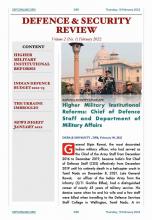
General Bipin Rawat, the most decorated Indian military officer, who had served as the Chief of the Army Staff from December 2016 to December 2019, became India's first Chief of Defence Staff (CDS) effectively from January 2020 until his untimely death in a helicopter crash in Tamil Nadu on December 8, 2021. Late General Rawat, an officer of the Indian Army from the Infantry (5/11 Gorkha Rifles), had a distinguished career of nearly 43 years of military service.
Paxton ported to drupal by DropThemes.in